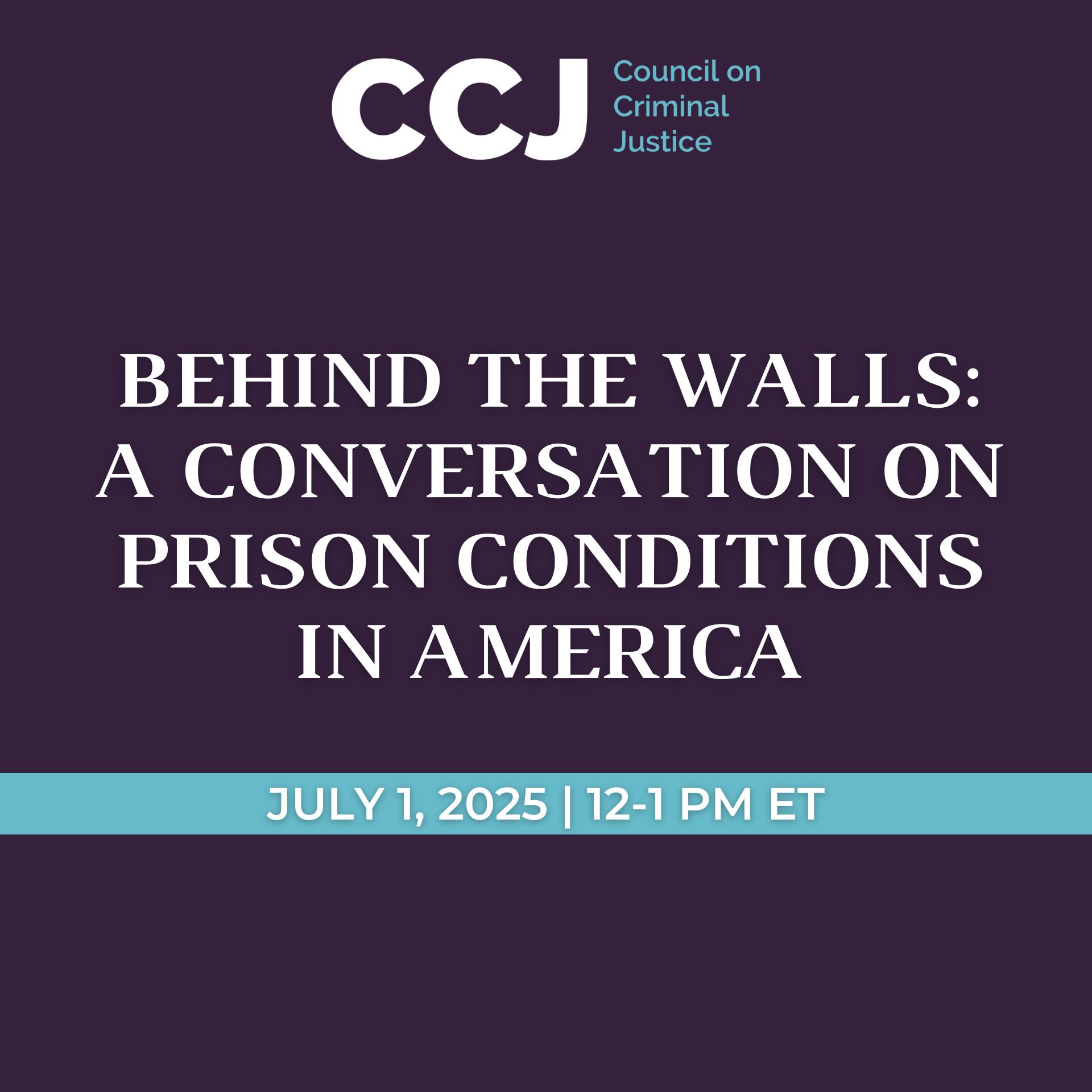On October 17, 2019, the Council on Criminal Justice and Arnold Ventures convened 200 top leaders, thinkers and doers from across the criminal justice and policy field for the Inaugural Leadership Summit in Washington, DC. This one-day event explored the key forces and trends that are shaping the criminal justice reform landscape today and provided attendees the opportunity to shape the nation’s safety and justice agenda.
Read on to explore our agenda and view segments from the Summit.
Technology offers potential to prevent and solve crimes, but raises concerns about privacy. Humanization suggests people increasingly recognize the need for second chances. Bipartisanship now characterizes issues that used to tear parties apart. Which of these and other forces are true game changers that can alter the course of the American criminal justice system, for better or worse? Which are the most susceptible to interventions by the criminal justice community? A panel of experts discussed forces atop the national safety and justice agenda as selected by participants in a pre-Summit poll.
Speakers:
Roy Austin – Partner, Harris, Wiltshire and Grannis, LLP (moderator)*
Marissa Dodson – Public Policy Director, Southern Center for Human Rights*
Alice Marie Johnson – Author, Speaker & Social Justice Advocate
DeRay Mckesson – Co-Founder, Campaign Zero*
Grover Norquist – President, Americans for Tax Reform
Colette Peters – Director, Oregon Department of Corrections*
Charles Ramsey – former Chief of Police and Commissioner in DC, Philadelphia and Chicago*
Louis Reed – National Organizer, #cut50*
Bruce Western – Bryce Professor of Sociology and Co-Director, Columbia University Justice Lab
People with mental illnesses are nine-times more likely to be incarcerated than hospitalized, and nearly 40% of people with serious mental illnesses will come into contact with the criminal justice system at some point in their lifetime. As funding for community mental health services continues to lose out to other state budget priorities, the criminal justice system continues to be the first – and often only – line of defense in treating people with mental illness. Judge Steven Leifman joined Major Jimmie Barrett for a discussion about the mental health reforms in Miami-Dade County (FL) and the path forward at the state and federal level.
Speakers:
Major Jimmie Barrett – Director of Corrections, Arlington County (VA) Sheriff’s Office
Judge Steven Leifman – Associate Administrative Judge, Miami-Dade County Court
The passage of the FIRST STEP Act in 2018 signaled a new era of reform from the federal government. Attendees heard from Ja’Ron Smith, Special Assistant to the President for Domestic Policy, for an update on implementation of the legislation and the steps ahead.
Speaker:
Ja’Ron Smith – Special Assistant to the President for Domestic Policy
Following the FIRST STEP Act, there is significant momentum for additional measures, but what are the actionable, politically-viable steps the federal government should prioritize? Members of the Council’s Task Force on Federal Priorities shared their draft recommendations for the next steps Washington should take on federal sentencing, reentry, and assistance to state and local jurisdictions.
Then, attendees weighed in on the recommendations, helping to shape the national safety and justice agenda for 2020 and beyond.
Speakers:
Nancy La Vigne – Vice President for Justice Policy, Urban Institute (moderator)*
Eddie Bocanegra – Senior Director, READI Chicago*
Nathan Deal – former Governor of Georgia (via video)*
Mark Holden – Senior Vice President, Koch Industries, LLC*
Sally Yates – former Deputy US Attorney General; Partner, King & Spalding*
Even the best ideas for reform can run into a buzzsaw of obstacles on the ground. This panel explored three types of challenges – political, policy, and program – and offered insights into lessons learned for identifying, confronting and overcoming them.
Speakers:
John Tilley – Justice Cabinet Secretary, Kentucky (moderator)*
Len Engel – Director of Policy and Campaigns, Crime and Justice Institute
Douglas Marlowe – Chief of Science, Law & Policy, Nat’l Association of Drug Court Professionals
Janelle Melohn – Victim Services Director, Iowa Attorney General’s Office*
As comprehensive criminal justice reform continues to play out in the states, governments and communities continue to grapple with best practices for reducing recidivism. Dr. Jennifer Doleac, director of the Justice Tech Lab and one of the nation’s foremost experts on the economics of crime, found some surprising evidence about what works – and doesn’t – to reduce recidivism. President Emeritus of the Safer Foundation, Diane Williams, discussed the implications of the latest research for policy and practice.
Speakers:
Jennifer Doleac – Director, Justice Tech Lab*
Diane Williams – President Emeritus, Safer Foundation*
What are the sources of the current bipartisan detente on crime and punishment and how can they be nurtured? What are the dangers of re-weaponizing crime in the context of the presidential campaign? Where are the landmines and ripest areas for progress? A panel of the nation’s leading policymakers discussed the road to reform that lies ahead.
Speakers:
Kevin Madden – Executive Vice President of Advocacy, Arnold Ventures (moderator)
Matt Bevin – Governor of Kentucky*
Jerry Brown – former Governor of California (via video)*
Gerald Malloy – South Carolina State Senator*
On an average day in America, nearly 50 people lose their lives to urban violence. For young Latino men, homicide is the second-leading cause of death. For young black men, it is not just the leading cause of death; homicide accounts for more deaths than the nine other top causes combined. But we now know of strategies that can work to reduce urban violence. What can police departments and communities do differently to stop the killing? What should state governments and policymakers in Washington do to support these efforts?
Speakers:
Thomas Abt – Senior Fellow, Harvard Kennedy School of Government
Rev. Michael McBride – Director of Urban Strategies & LIVE FREE Campaign, Faith in Action
Throughout the day, leaders of the Council on Criminal Justice and Arnold Ventures addressed how far criminal justice policy has come and the critical role the Council will play in sustaining change.
Speakers:
Adam Gelb – President & CEO, Council on Criminal Justice*
Mark Holden – Senior Vice President, Koch Industries, LLC*
Laurie Robinson – former Assistant US Attorney General, US Department of Justice Office of Justice Programs; Professor, George Mason University*
Jeremy Travis – Executive Vice President of Criminal Justice, Arnold Ventures
Abby Walsh – Director, Council on Criminal Justice
Sally Yates – former Deputy US Attorney General; Partner, King & Spalding*
Video of the opening remarks and closing remarks are available on the Council’s YouTube channel.
Contact us for more information on the Inaugural Leadership Summit, our partners, or future events.
Directors, Trustees, and Members of the Council on Criminal Justice are denoted with *.



